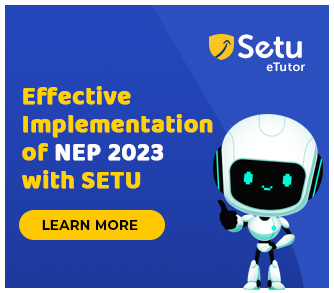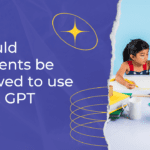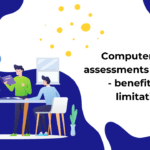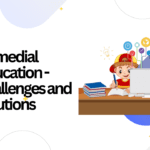What changes the NEP is going to bring into your child's education
Child education will undergo considerable changes because of India’s National Education Policy (NEP) 2020, which intends to transform the educational system completely.
The NEP promises a new 5+3+3+4 structure, several entry and departure possibilities, and a concentration on technology and practical learning.
The NEP policy helps in improving memory, proficiency, and exam results. It also suggests using the mother tongue language as the primary medium of instruction until at least Grade 5.
The NEP sees technology as a way to increase access, enhance teaching and learning, and streamline management and administration. The National Educational Technology Forum (NETF), which would serve as a forum for discussion on the application of technology in education, is suggested to be established by the policy.
The NEP also emphasizes the utilization of smart classrooms, AI-powered evaluation, and cost-effective training techniques to increase teacher efficiency. The NEP aims to improve educational standards and give pupils a better learning environment.
The top 5 NEP 2020 highlights are as follows:
- Several points of entry and exit for degree programmes.
- Abandonment of MPhil programmes.
- One regulatory body for institutions of higher learning.
- Board exams with low risk factors.
- Common university admission examinations
NEP 2020's impacts on India's educational system
1. Content Instructional methods
A new 5+3+3+4 framework will replace the traditional 10+2 school curriculum structure, which corresponds to ages 3–8, 8–11, 11–14, and 14–18, respectively.
Before completing 12 years of formal education, a student must attend Anganwadi, or preschool, for three years. To achieve this transition at the foundational level, curriculum, material, and pedagogy must be reorganized to comply with the NCF (National Curriculum Framework), and textbook content needs to be updated.
2. Technology integration in the process of instruction.
The National Educational Alliance for Technology (NEAT) has been established as a regulating agency to integrate technology for better learning outcomes. NEAT seeks to apply artificial intelligence to tailor the learning experience to the learner’s needs.
It even suggests expanding national alliance interests with EdTech businesses to improve learning results. But building a strong internet infrastructure in rural regions is one of the major obstacles.
3. Analysis
It has been suggested that the educational system should be regularly evaluated by a national assessment center named PARAKH (Performance Assessment, Review, and Analysis of Knowledge for Holistic Development).
NEP2020 intends to recognize this requirement by evaluating “higher order skills,” such as creativity, critical thinking, problem-solving, visualizing, and idea generation.
The shifting competency levels across social groupings demonstrate that better performance standards are produced when the emphasis of evaluations is changed from academic grades to higher-order talents.
4. Mother Tongue as a Medium of instruction:
NEP 2020 emphasizes using one’s mother tongue as the primary medium of teaching, without requiring everyone to speak a certain language.
Till eighth grade, it is preferable to speak in your native tongue because this helps kids understand difficult subjects.
5. Science, the arts, and commerce are muddled
The NEP 2020 does not distinguish between academic and vocational streams and lays a major emphasis on transdisciplinary learning. Users can access interdisciplinary courses for free on Setu , one of the best knowledge gaining platforms. These courses help users develop unique vocations for future employment.
Students select the courses they want to take across all streams. Internships are a part of vocational education starting in the sixth grade.
6. Teacher Education
The new NEP policy proposes significant changes in the teacher education system, including a four-year integrated B.Ed program and continuous professional development for teachers. This will contribute to raising teaching standards and better prepare teachers to meet the evolving demands of their students.
Wrapping Up:
NEP 2020 is an essential turning point in the evolution of India’s educational system. The pedagogical framework will undergo the urgently required structural shift, prioritizing experiential and practical learning while giving children the skills they need for the twenty-first century.
Starting in grade 9, SETU, is the only platform providing multidisciplinary education with skill-building tasks for senior high school and college students.









Leave a reply